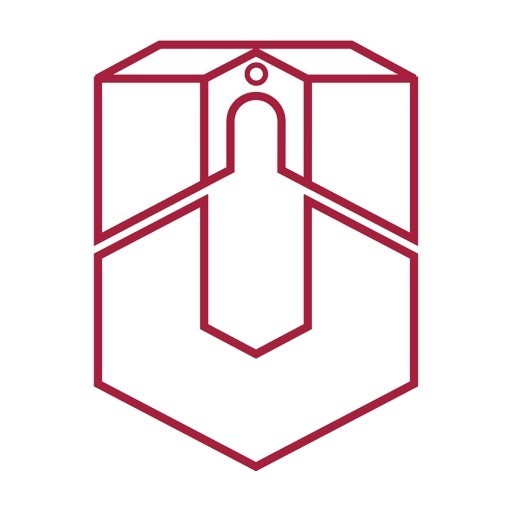Photos of university / #unifreiburg
Liberal Arts and Sciences is a specific approach to Bachelor level education. It reaches across academic fields while also offering discipline-oriented academic training in one particular major. It encourages students to critically reflect on science and knowledge and to become skilled communicators and creative shapers of their environment. Focusing on the education of the whole person, it creates opportunities for personal development into motivated and responsible human beings.
Programme Features
Contents
The LAS programme has three parts: core (66 ECTS), major (102 ECTS), and electives (72 ECTS).
1. The core is shared by all LAS students. It encompasses basic and advanced academic skills, reflections on knowledge and science, and a curriculum on responsibility and leadership.
2. The majors (102 ECTS) provide an in-depth education in a specific academic field that is, in itself, interdisciplinary. After their first year of studies, students choose one of the following majors:
3. For their electives, students can choose from a wide range of courses at UCF and the University of Freiburg. The elective section is also designed to accommodate studies abroad, internships, supervised independent projects or further language studies. The electives allow students to supplement their major and to shape their specific academic profile.
Programme Features
- Degree: Bachelor of Arts or Bachelor of Sciences (depending on choice of major)
- The language of instruction is English. As part of the LAS programme, non-German speaking students must learn German up to the level of A2 (according to the Common European Framework of Reference).
- Duration: LAS is a four-year programme that includes breadth and depth. It has a progressive process covering academic competencies, skills training, academic specialisation, and room for intellectual exploration.
- Fees: There are no tuition fees apart from a registration fee of about 150 EUR per semester. UCF does not provide housing or scholarships. Living and accommodation costs amount to ca. 750 EUR per month.
- LAS is a selective programme with an annual intake of 80 students. Starting LAS is only possible in the winter semester. The application period is 1 June to 15 July.
Contents
The LAS programme has three parts: core (66 ECTS), major (102 ECTS), and electives (72 ECTS).
1. The core is shared by all LAS students. It encompasses basic and advanced academic skills, reflections on knowledge and science, and a curriculum on responsibility and leadership.
2. The majors (102 ECTS) provide an in-depth education in a specific academic field that is, in itself, interdisciplinary. After their first year of studies, students choose one of the following majors:
- Earth and Environmental Sciences: The major Earth and Environmental Sciences takes an interdisciplinary approach in order to provide a holistic view of our planet Earth. Students will study physical and living environments with a strong focus on environmental governance and sustainability. In addition, they will explore questions about the history, evolution, and the future of the Earth.
- Life Sciences: The major Life Sciences is focused on human beings and the conditions under which they interact with their physical environment and other human beings. Specifically, the Life Sciences major explores questions about the structures and functions of the human body and the human mind, the interaction with the environment, and also the interface between biological and technical systems.
- Governance: Governance studies what happens when many people live together and depend on each other. It is about the negotiation and achievement of common goals, such as peace, prosperity, and happiness. The major Governance is not a programme in political science, international relations, or law. It covers a broader range of disciplines and is oriented around three major areas of inquiry: communities, states, and markets.
- Culture and History: The major Culture and History focuses on the academic study of the cultures and histories of people from around the world and across time. The major has no temporal or geographic concentration. Instead, students sample an exciting range of topics while developing their ability to analyse all kinds of cultural objects. Culture and History's interdisciplinary approach to the humanities combines history, philosophy, anthropology, and the study of art, music, and literature.
3. For their electives, students can choose from a wide range of courses at UCF and the University of Freiburg. The elective section is also designed to accommodate studies abroad, internships, supervised independent projects or further language studies. The electives allow students to supplement their major and to shape their specific academic profile.
Educational organisation
The LAS programme is in part organised in a block schedule: block courses run for eight weeks with several sessions per week. This gives students and teachers the opportunity to engage very closely with each other and with the topic at hand. It also provides space for innovative forms of instruction, from excursions and projects to group work and problem-based learning formats.During the first year - the so-called Foundational Year - of the Liberal Arts and Sciences programme, students follow the same curriculum and establish a shared basis of knowledge and skills. From year two onwards, students have a significant amount of freedom in designing their own study programme. Depending on their choices with regard to the major, electives, and study abroad opportunities, individual study programmes will develop quite differently. Parallel to their major, all students take further core courses, notably on leadership and responsibility, and have substantial freedom to take courses of their choice in the programme's elective section. In the last semester of year four, students write a Bachelor's Thesis in the area of their major.
Five principles guide our approach to learning and teaching:
1. Integrating Freedom and Structure: The LAS programme offers an intellectually challenging and dynamic learning environment in which students can shape their own academic path within a structured set of possibilities. In comparison to standardised one-size-fits-all programmes, LAS offers more room for self-directed learning and choice. At the same time, students develop a solid basis of shared knowledge and skills in the compulsory courses in the Core and the majors.
2. Crossing Disciplinary Boundaries: Right from the beginning of their studies, LAS students learn about the practices and traditions of different academic disciplines. They learn how knowledge is typically generated in the natural sciences, the social sciences, and the humanities. Supported by courses that systematically reflect on knowledge and science, this purposeful exposure to academic diversity sharpens students' independent thinking and raises their awareness for disciplinary blind spots as well as possibilities of interdisciplinary collaboration.
3. Creating a Learning Community: Bringing the right people together and creating spaces for stimulating exchange of ideas and knowledge is the key to academic learning and personal development. The LAS programme brings together students and lecturers from a variety of academic and cultural backgrounds and with a wide range of interests. What unites them is an intellectual openness and a willingness to develop themselves further. This spirit together with the personal atmosphere of the college provide an inspiring environment for learning and collective knowledge creation in and beyond the classroom.
4. Mixing Teaching Methods: Due to the broad range of academic topics and disciplines covered in the LAS programme and as people have different learning styles, we apply a variety of teaching methods ranging from seminars to lectures, from real-world projects and excursions to research-based learning. Overall, LAS courses are rather small-scale and adaptable to the students' learning process.
5. Multilingualism as added value: LAS is an English-taught programme and English is the default for both spoken and written communication at UCF. At the same time, multilingualism is crucial for international communication as well as for academic and professional mobility. As part of the LAS programme, all students learn to communicate on academic topics in excellent English and develop skills in another foreign language. Non-German students are required to learn German so as to gain access to the city and University of Freiburg as well as to the rich German traditions in the sciences and humanities.
Study abroad unit(s)
Structured study abroad programmes are currently available for University College Maastricht (including a double degree programme), University College London, and Schreyer Honors College at Penn State University. Further structured programmes are being developed. UCF also has several Erasmus exchanges. Finally, individually planned stays abroad are possible. Credits taken abroad can be transferred into the LAS programme, subject to approval by the Board of Studies.Internships
The elective section of the programme allows for academically relevant internships, subject to approval by the Board of Studies.Forms of assessment
Forms of assessment vary according to course and subject. An emphasis throughout the programme is on writing effective short essays. Written exams, portfolio work, oral presentations, longer research papers and small-group project presentations are also frequent.Course objectives
The LAS programme offers students broad interdisciplinary training and allows for individual academic emphases. Its central objectives are: (1) providing students with a thorough epistemological foundation; (2) teaching students intellectual versatility across academic disciplines on the basis of real-life problems and projects; (3) enabling students to apply the acquired modes and strategies of thought and action to complex academic and practical challenges and responsibilities. Students will also learn how to self-responsibly and self-confidently advance their academic and intellectual development after graduation, for and beyond their careers.LAS graduates are prepared for work responsibilities and careers in international environments that demand fast and efficient adaptation to varying and complex duties on a day-to-day basis. The focus is on spheres of action that call for competent and efficient interaction with colleagues from different backgrounds and with manifold forms of (academic) knowledge and information. Universities, research institutions, think tanks, international organisations, politics and administration, media as well as international firms are potential employers.
Language requirements
Applicants must provide proof of their English skills at level B2 or above according to the Common European Framework of Reference for Languages (CEFR) (see: https://www.daad.de/deutschland/studienangebote/sommerkurse/en/15297-common-european-framework-of-reference-for-languages/).Academic requirements
The LAS programme is selective. The grade- and interview-based selection emphasises academic achievements, personal motivation, and the match between the programme and interested students. Our target group is students with intellectual curiosity and responsibility, who are looking for breadth and depth in their academic training. Requirements:- officially certified copy of your higher education entrance qualification
- proof of English proficiency at B2 level or above according to the Common European Framework of Reference for Languages (CEFR)
- letter of motivation (in English, maximum 1,000 words)
- study-orientation test
Enrolment fees
Approx. 150 EUR per semesterCosts of living
Participants must make sure in good time that sufficient funds are available to finance their participation in a course of study. The average cost of living in Freiburg for one month is currently approx. 800-900 EUR. Some details:- Student accommodation costs approx. 280-450 EUR (monthly).
- Private expenses amount to around 350 EUR (monthly).
- Health insurance is available for approx. 45-90 EUR (monthly).
- Transport: A special student fare for regional transport costs approx. 89 EUR (per semester).






